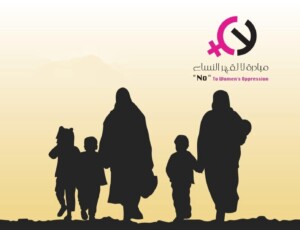Unamid welcomes US sanctions relief on Sudan
In a press statement on Sunday, the joint UN-AU Mission in Darfur (Unamid) welcomed the US Administration’s decision to lift most economic sanctions imposed on Sudan.
The decision, which ends more than two decades of economic sanctions, is hoped to contribute significantly to the betterment of the lives of the Sudanese people; including the population we serve in the Darfur region, the statement reads.
In a press statement on Sunday, the joint UN-AU Mission in Darfur (Unamid) welcomed the US Administration’s decision to lift most economic sanctions imposed on Sudan.
The decision, which ends more than two decades of economic sanctions, is hoped to contribute significantly to the betterment of the lives of the Sudanese people; including the population we serve in the Darfur region, the statement reads.
“On behalf of the Mission, I would like to congratulate the people and the Government of the Republic of Sudan on the lifting of the American sanctions.
“We are hopeful that this decision shall be a significant progress towards improving the lives of the population we serve in Darfur, in terms of creating livelihoods, and raising of education and health standards,” Unamid’s Joint Special Representative and Joint Chief Mediator for Darfur Jeremiah Kingsley Mamabolo said.
“I also hope that this would constitute a positive step forward on the way of realising permanent peace, stability and sustainable development in Darfur.
“I call on all the Sudanese parties to take advantage of this window of opportunity to speed up the finalisation of the peace process and use it as a catalyst for achieving permanent peace in Darfur,” he added.
‘Victory’
On Friday, the administration of President Donald Trump lifted two-decades-old economic sanctions on Sudan “in recognition of the Government of Sudan's sustained positive actions to maintain a cessation of hostilities in conflict areas in Sudan, improve humanitarian access throughout Sudan, and maintain cooperation with the US on addressing regional conflicts and the threat of terrorism”.
The US State Department noted that any further normalisation in the bilateral relations with Khartoum requires continued progress by the Sudanese government.
The BBC commented on the news by saying that the sanctions relief is expected to boost sectors in the Sudanese economy that have suffered from the trade embargo – these include aviation, agriculture, oil, and technology.
“The move will be celebrated by some as a victory for the ruling National Congress Party, but it remains to be seen how the average Sudanese will benefit.
“For decades, Khartoum has blamed the sanctions for all sorts of ills that befell the Sudanese economy, rather than confronting the chronic mismanagement and the rampant corruption,” BBC’s Mohanad Hashim stated.
Human rights
In early May, Human Rights Watch called on Washington to delay the definite lifting of economic sanctions until the human rights situation in Sudan has improved.
A month earlier, Enough Project urged the US Congress to design “a clear US policy approach, one that deploys the types of modernised pressures that can generate meaningful leverage for creating real and lasting change in Sudan through a Human Rights and Peace Track” instead of using “benchmarks that do not fundamentally alter the nature” of the Khartoum regime.











 and then
and then